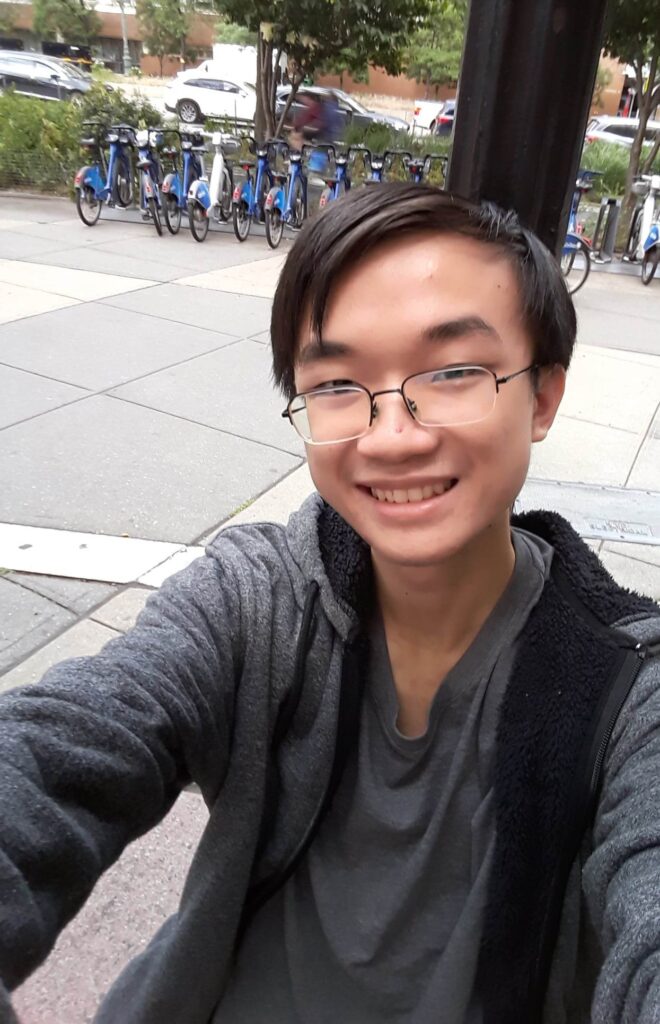2023 is a year of social media. As Congress wages war on TikTok and Elon Musk fights on X (formerly Twitter), it is necessary for the public to stop and recognize the massive impact that social media have had on us. As far back as 2005, the 18-34 year old demographic became increasingly dependent on the Internet for news, notably through apps such as Instagram and Facebook (Vorhaus). As of 2023, 85% of Americans use the Internet everyday, with the average American spending almost seven hours online per day. Of that, two and a half hours are spent on social media (Supan). This is all before you consider the fact that we are merely at the beginning of the 21st century. The Internet itself was invented barely forty years ago!
The Internet connects us in so many ways, allowing ideas to spread rapidly. For the most part, this is a great and beautiful thing. Knowledge once locked away in musty old books in a far off library is now accessible with a click of a button. Yet, just as knowledge can spread easily on the Internet, so can hate speech. As an 18 year old student who’s chronically online, I’m no stranger to the occasional hate speech and toxic comments. I’ve had cyberbullying seminars every school year since the sixth grade and never thought much about it. Then, things suddenly became a lot more personal.
I had known since December 2022 that I would be attending the University of Chicago. The picturesque campus and its commitment to academic freedom enthralled me in ways that no other university did. I spent all summer scrolling away on Instagram as usual, looking through all the posts and accounts that featured the school before landing on a New York Times article, “At UChicago, a Debate Over Free Speech and Cyberbullying”.
As I was looking over school brochures and writing my 662 word “Why UChicago” essay, Daniel Schmidt, a student at the university, was waging an online war against Professor Rebecca Journey over the contents of a course that she was going to teach (Patel). The battle was a monstrosity freshly packaged from the factory that is the Internet, a phenomenon known innocently as “canceling.” Internet users dog-pile a creator with hate, aiming to erase existing support. I had always understood it as a tactic only to be used against public personalities who incurred public outrage, not for the contents of a class, and especially not in a university famed for its academic freedom.
Facing such public outrage over the contents of a class that “[has] been taught in liberal arts departments for decades,” what should Professor Journey have done? (Patel) Should she have roused her Internet following and bash Schmidt’s in a violent internet gang fight? Or maybe she should have challenged Schmidt to a duel of academic prowess, staking everything upon the exchange of ideas?
In “On Liberty,” John Stuart Mill argues that we should be able to speak “as we like, subject to such consequences as may follow: without impediment from our fellow-creatures, so long as what we do does not harm them, even though they should think our conduct foolish, perverse, or wrong” (Mill 2018). Mill believes that through the clash of ideas, stronger ones will rise to the surface while weaker ones fall off. Without people continuously defending their ideas, they will eventually turn into “dead dogma” (Mill 2018). Essentially, the idea that convinces the majority is the best idea. Yet, as we know all too well from history, just because ideas are embraced by the majority does not mean that they are correct, or even on the path to correctness.
If it were up to Mill, he would let Schmidt and Professor Journey battle it out in the Internet arena. The idea that “survives” the exchange is the most rightful one. Yet, this argument brings up multiple questions. Just because an idea exists doesn’t mean we have an obligation to propagate or provide a platform for it. If an idea is propagated, it doesn’t mean it should be defended. For example, when attempting to reduce hate speech, giving both sides of a debate equal value would essentially be giving a platform to hate speech to propagate. Moreover, in the swamp that is the Internet, would anyone take Professor Journey’s viewpoints seriously? Would they even get noticed at all, when thousands of posts are being shared each and every single day? It is unreasonable to expect Professor Journey’s lone voice to be able to outshine Schmidt’s thousands of followers. Even if she is more “correct,” but if there is no one to listen to it, it might as well be “dead.”
In his book Between the World and Me, Ta-Nehisi Coates argues against the tyranny of the majority. In describing police brutality, he states that, “the problem with the police is not that they are fascist pigs but that our country is ruled by majoritarian pigs,” and that, “the police reflect America in all of its will and fear, and whatever we might make of this country’s criminal justice policy, it cannot be said that it was imposed by a repressive minority” (Coates 97). Coates frames most people as “dreamers,” living in a world that surrounds their worldview. He acknowledges that “there is the burden of living among Dreamers, and there is the extra burden of your country telling you the Dream is just, noble, and real, and you are crazy for seeing the corruption and smelling the sulfur,” but urges his son to be a “conscious citizen of this terrible and beautiful world” (Coates 129, 132).
Coates is arguing against racism, which is a noble and normally accepted idea. Yet his words could also be applied to minority voices such as Professor Journey who have been suppressed by the majority. Coates words are self-assurance at best, arrogant at worst. Who can claim to not be “dreaming”? Are we all not living a “dream” of our own creation? Ideas such as the Earth being flat can be proven incorrect easily enough, but issues of morality do not necessarily have an answer. Compared to Mill, Coates argues for a more hands-off approach. He would rather Professor Journey be aware that the people attacking her are wrong and accept it rather than fighting back with zeal. Eventually, people will realize that “without its own justifications, the Dream would collapse upon itself” (Coates 131).
In his book The Fire Next Time, Baldwin provides a succinct explanation: “the vision people hold of the world to come is but a reflection, with predictable wishful distortions, of the world in which they live” (Baldwin 40). The greatest danger “is the loss of their identity” (Baldwin 40). Ideas that are based on fundamental truths are the hardest to argue against because they form the basis of people’s lives. People vehemently argue in seemingly useless debates and make incomprehensible arguments because “what they are actually guarding is their system of reality and what they assume themselves to be” (Baldwin 86). To lose the competition of ideas is to lose themselves. This creates a situation where people do not believe, not because they don’t want to, but because they can’t. Baldwin points to the fact that “love takes off the masks that we fear we cannot live without and know we cannot live within” as a solution (Baldwin,95). We need the empathy to understand others and coexist.
Compared to Mill and Coates, Baldwin wishes for both sides to have a peaceful debate. By balancing their arguments, they will come with a solution themselves. This is a great scenario, but it will only work if the two are actually willing to engage in proper dialogue. Also, even if the two come to an agreement, will the fans hidden behind the Internet accept the result? After all, people are not always ready and willing to put down their biases and discuss in proper dialogue. If everyone could be reasoned with, there wouldn’t be so many issues in the world. Thoughtful discourse may solve some of the issues, but it is unrealistic for it to solve all of the associated problems.
While the three authors’ arguments contain unrealistic expectations, Mill, Coates, and Baldwin all seem to support the creation of a forum to have proper dialogues. Free speech does not necessarily mean entering unregulated conflict, but rather an opportunity to share views in an organized setting. In his book, Coates writes that “the killing fields of Chicago, of Baltimore, of Detroit, were created by the policy of Dreamers, but their weight, their shame, rests solely upon those who are dying in them” (Coates 135). The policies were created by people, yet the burden of living was placed on the constituents. There needs to be guardrails in place so as to ensure the protection of both sides of a debate. The burden of maneuvering around rules, or rather lack of rules, should not be placed upon those who engage in debate, but rather administrators. Mill and Baldwin would agree with Coates, believing that as long as the forum gives people a chance to properly and empathetically debate, it would be the best solution.
Ultimately, UChicago administrators did not fully interfere in Professor Journey and Schmidt’s dispute. Rather, they only moved Professor Journey’s class into a secure location. While this may only seem to be a minor issue compared to the other big news stories in today’s world, it highlights a sign of how the Internet can increasingly be harnessed as a weapon against those people disagree with. It would be fine if such events only occur once or twice, but as the world progresses further into the 21st century, and more people are drawn to the Internet, we should expect for such events to happen more often. If we do not take concrete steps now to protect the freedom of thought, the freedom to debate, the freedom to express one’s views without being attacked on the internet without opportunity to provide evidence and reasoning, we will be opening the floodgates to an uncertain future, one where one must watch one’s words at every instance lest they be attacked for it. By then, there will be “no more water, only the fire next time” (Baldwin 106).
Works Cited
Baldwin, James. The Fire Next Time. Rev. ed. Vintage, 1992.
Coates, Ta-Nehisi. Between the World and Me. Spiegel & Grau, 2015.
Mill, John Stuart, et al. On Liberty. Econlib, 13 July 2018, www.econlib.org/library/Mill/mlLbty.html.
Patel, Vimal. “At UChicago, a Debate Over Free Speech and Cyberbullying.” New York Times. 3 July 2023, p. A11.
Supan, Joe. “How Americans Use the Internet: Data Report.” Allconnect, 31 Mar. 2023, www.allconnect.com/blog/data-report-how-americans-use-the-internet.
Vorhaus, Mike. “People Increasingly Turn to Social Media for News.” Forbes, Forbes Magazine, 12 Oct. 2022, www.forbes.com/sites/mikevorhaus/2020/06/24/people-increasingly-turn-to-social-media-for-news.

